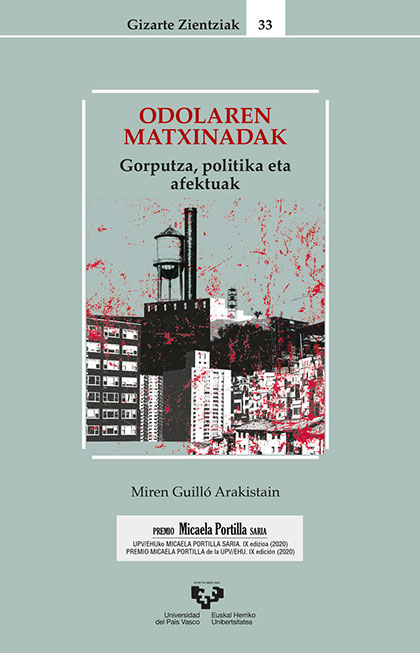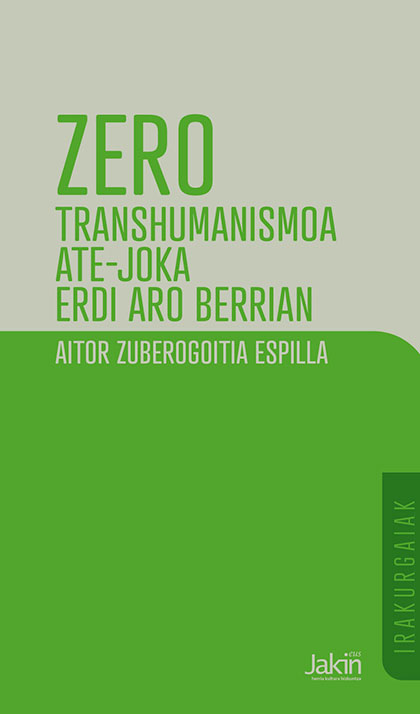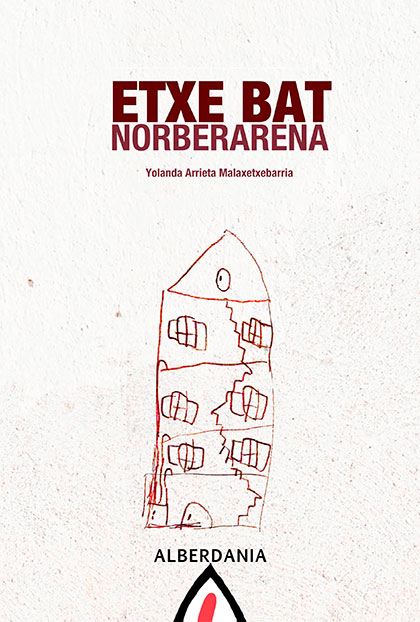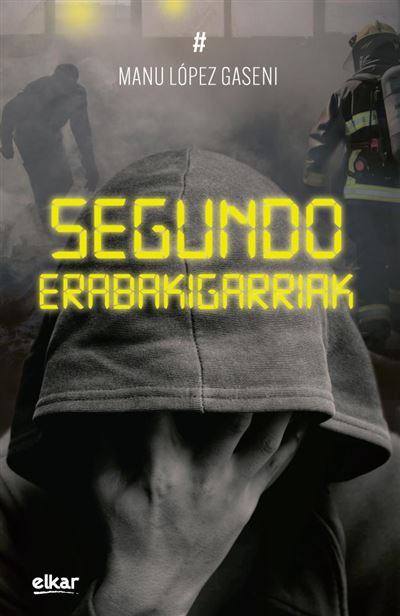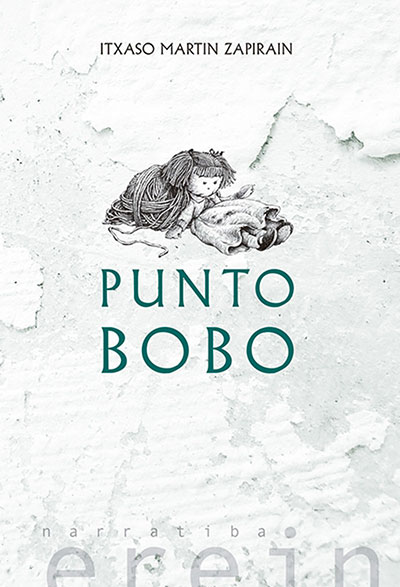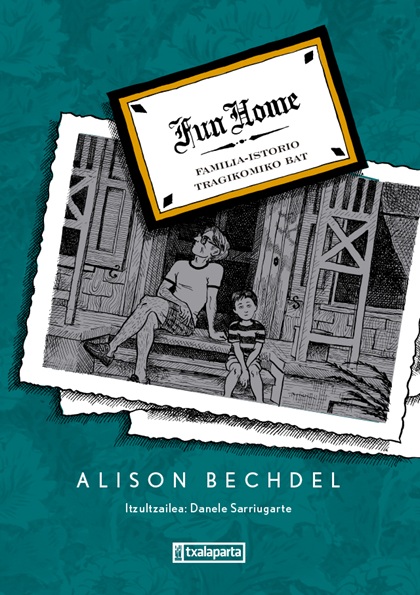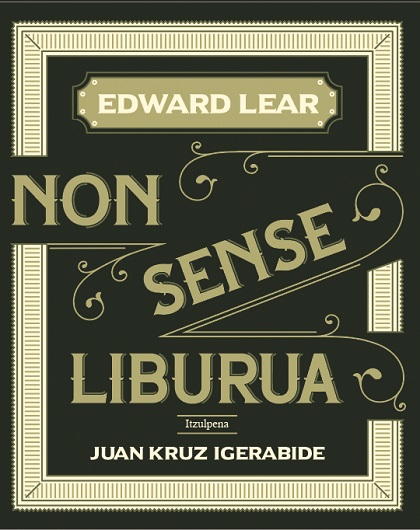The road is made step by step
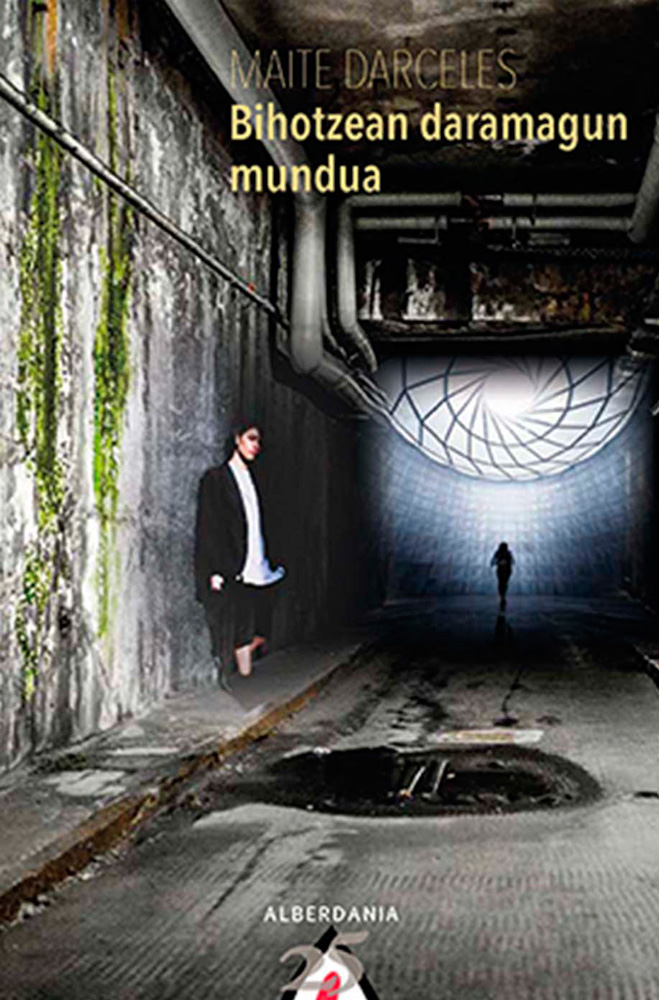
Is there a science fiction (Zi-Fi) in Basque? A woman writing a book? Are you feminists among our books?
Two weekends ago in Bilbao it was Anable Fest: I. Feminist Science Fiction Conference. The first round table was dynamized by Arrate Hidalgo: “Basque writers in cii-fi: a special reading”. They started with Mayi Pelot, mentioned several narratives of Itxaro Borda and ended with the World we carry in the Heart of Maite Darceles, which we will discuss in these lines. Then Ana I. Morales and Josune Muñoz, by Eider Rodriguez, made a dramatic reading of the story I would rather not lie.
In our unstandardized language and literature, there are still notable gaps, including some supposedly small and supposedly invaluable literary genres. Therefore, Darceles’ contribution is also to be welcomed, as there are few (women) who write the Ci-Fi.
Zi-fi is often very useful to look at society, to exorcise the fears of the time and to denounce what we don't like, so it's no wonder that Darceles appeals to the world that he carries in his heart, to build a better world and criticize the present and imagining a near future.
When we are aware of the power relations and the violation of rights, we can awaken the desire to change the world. This is what we can find in the previous non-fictional book of this author: Guidelines for transformation (2009). Written with the intention of making the world of work more democratic and participatory and which is the basis of the work we discuss.
The protagonist is Lorea, a young idealist who is dedicated to painting. He is very curious and for his thesis he is exploring in the past when he discovers a revolution erased from history. You will know the whims of your world: control and punishment through technology, command of machines and manipulation of information, regulatory and unifying function of leisure.
Just as the black novel makes a social critique through killings, science fiction can do so from the future. Although the pillars and goals of this work are too present, it seems advisable to awaken awareness and reflection among young people. And maybe also to be an incentive to imagine possible futures.
Odolaren matxinadak. Gorputza, politika eta afektuak
Miren Guilló
EHU, 2024
Miren Guilló antropologoaren saiakera berria argitaratu du EHUk. Odolaren matxinada da izenburu... [+]
Zero. Transhumanismoa ate-joka erdi aro berrian
Aitor Zuberogoitia
Jakin, 2024
-----------------------------------------------------------
Hasieran saiakera filosofiko-soziologikoa espero nuen, baina ez da hori liburu honetan aurkitu dudan bakarra. Izan ere, biografia... [+]
Ihes plana
Agustín Ferrer Casas
Itzulpena: Miel A. Elustondo
Harriet, 2024
---------------------------------------------------------
1936ko azaroaren 16an Kondor legioko hegazkinek Madrilgo zenbait museori egin zieten eraso. Eta horixe bera da liburu honetara... [+]
Etxe bat norberarena
Yolanda Arrieta
Alberdania, 2024
Gogotsu heldu diot irakurketari. Yolanda Arrietaren obra aski ezaguna zait eta iragan maiatzean argitaratu zuen proposamen honetan murgiltzeko tartea izan dut,... [+]
Rosvita. Teatro-lanak
Enara San Juan Manso
UEU / EHU, 2024
Enara San Juanek UEUrekin latinetik euskarara ekarri ditu X. mendeko moja alemana zen Rosvitaren teatro-lanak. Gandersheimeko abadian bizi zen idazlea zen... [+]
Idazketa labana bat da
Annie Ernaux
Itzulpena: Leire Lakasta
Katakrak, 2024
Decisive seconds
Manu López Gaseni
Beste, 2024
--------------------------------------------------
You start reading this short novel and you feel trapped, and in that it has to do with the intense and fast pace set by the writer. In the first ten pages we will find out... [+]
When the dragon swallowed the
sun Aksinja Kermauner
Alberdania, 2024
-------------------------------------------------------
Dozens of books have been written by Slovenian writer Aksinja Kermauner. This is the first published in Basque, translated by Patxi Zubizarreta... [+]
Puntobobo
Itxaso Martin Zapirain
Sowing, 2024
----------------------------------------------------
The title and cover image (Puntobobo, Wool Bite and Rag Doll) will suggest mental health, making the point and childhood, but more patches will be rolled up as the book... [+]
Itsasoa bete urre
Dani Martirena
Irudiak: Ana Ibañez
Txalaparta, 2022
--------------------------------------------
Liburu honetara barneratzen den irakurleak sentsazio ugari izango ditu. Deigarria da azaleko letren urre kolorea eta zuritasuna, goialdean ageri den... [+]
Migranteak
Issa watanabe
1545 argitaletxea, 2024
-------------------------------------------
Ezagutzen ez nuen 1545 argitaletxeak 2024an itzuli eta kaleratu du Issa Watanaberen Migranteak liburua. Animalia talde batek egiten duen migrazio prozesua kontatzen du; eta... [+]
Adania
Shibli
Translation: Aitor Blanco Leoz
Igela, 2024
----------------------------------------------
During these days, an Israeli soldier is bombarding hospitals, schools, Palestinian refugee camps with drones as if it were a video game, while in the West we see on... [+]
Fun Home. A tragic family
history Alison Bechdel
Txalaparta, 2024
---------------------------------------------
Fun Home. Alison Bechdel is known for the first publication of the graphic novel A Tragic Family Story (2006), although he himself participated in several... [+]
PLEIBAK
Miren Amuriza Plaza
Susa, 2024
--------------------------------------------------
Susa has published Miren Amuriza's second novel in the atrium of the Durango Fair: Plead. It's plebiscites because you're singing about an earlier recording. Berria includes the... [+]
Book Non sense
Edward Lear
Translation: Juan Kruz Igerabide
Denonartean, 2024
----------------------------------------------
The writer and illustrator Edward Lear published this work in 1846. As Igerabide says in the prologue of the book, “nonsense humor, absurd... [+]











